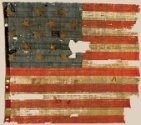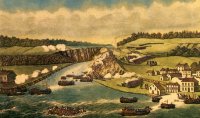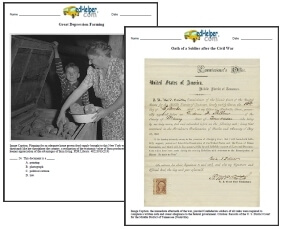
Worksheets and No Prep Teaching Resources
Reading Comprehension Worksheets
The War of 1812

The War of 1812
 Worksheets and No Prep Teaching Resources Reading Comprehension Worksheets The War of 1812 |
 The War of 1812 |
| edHelper's suggested reading level: | grades 9 to 12 | |
| Flesch-Kincaid grade level: | 7.78 |
|
If at First You Don't Succeed...The Invasion(s) of Canada
By Toni Lee Robinson |

|
 1 June 18, 1812, the U.S. Congress declared war on Great Britain. Some Americans called this "the second war of independence." Britain's disdain for hard-won U.S. liberty had angered Americans. The impressment of U.S. citizens into the Royal Navy and the harassment of U.S. ships on the high seas had caused great indignation. Reports that the British had armed and incited native tribes to attack U.S. frontier settlements had fanned the flames of conflict.
1 June 18, 1812, the U.S. Congress declared war on Great Britain. Some Americans called this "the second war of independence." Britain's disdain for hard-won U.S. liberty had angered Americans. The impressment of U.S. citizens into the Royal Navy and the harassment of U.S. ships on the high seas had caused great indignation. Reports that the British had armed and incited native tribes to attack U.S. frontier settlements had fanned the flames of conflict. |
Create Weekly Reading Books
Prepare for an entire week at once! |
| Leave your feedback on If at First You Don't Succeed...The Invasion(s) of Canada (use this link if you found an error in the story) |
 |
The War of 1812
|
 |
High School Reading Comprehensions and High School Reading Lessons
|
 |
United States
|
|
|
 | Fifty States Theme Unit |
 |
Document Based Activities |